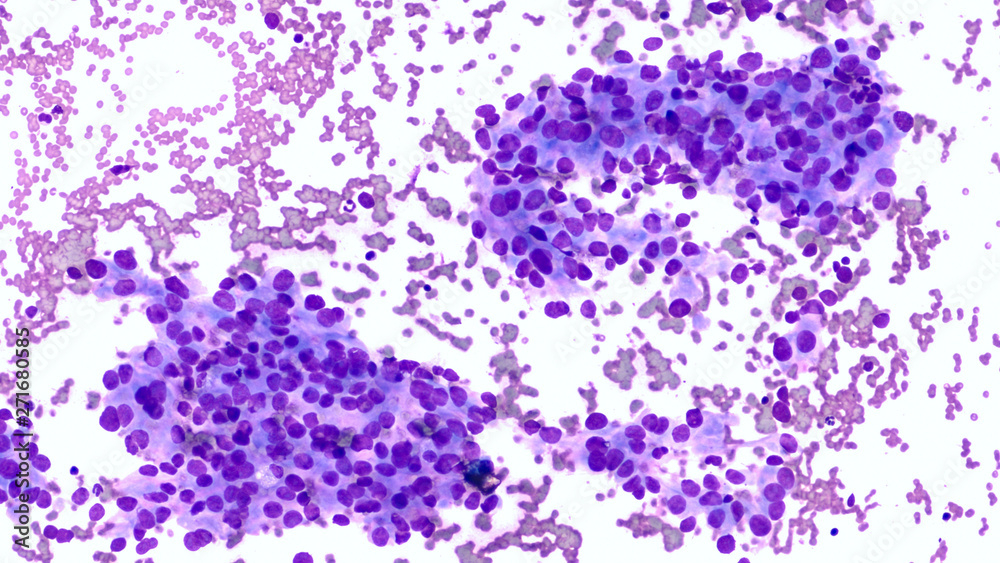
Bayer announces US$1.3bn oncology deal with Kumquat Biosciences
Bayer AG’s Pharmaceuticals division in Berlin has expanded its oncology pipeline through a licensing and collaboration agreement with US-based Kumquat Biosciences Inc., which may yield up to US$1.3bn in total consideration. Should Kumquat successfully complete its high-risk Phase Ia clinical study targeting the common KRAS G12D mutation, Bayer will assume responsibility for further development and global commercialisation of the candidate.
The agreement is intended to strengthen Bayer’s capabilities in the treatment of pancreatic, colorectal, and non-small cell lung cancers (NSCLC). These malignancies are frequently driven by the KRAS G12D mutation, which is characterised by the substitution of glycine (G) with aspartate (D) at position 12. The mutation results in constitutive activation of KRAS by enabling stable GTP binding, thereby promoting uncontrolled cell proliferation. Historically, KRAS G12D was considered ‘undruggable’ due to the absence of a suitable binding pocket and modifiable side chains. Furthermore, GTP cannot be effectively displaced by analogues or inhibitors.
Market opportunity
Given the prevalence of KRAS G12D-driven tumours, a successful therapeutic targeting this mutation could represent a substantial market opportunity. The number of inadequately treated ductal carcinomas alone is projected to double by 2050, reaching nearly one million cases. According to Professor Dominik Rüttinger, Head of Early Research and Development at Bayer Pharmaceuticals in Berlin: “KRAS mutations are present in nearly a quarter of all human cancers. However, the most common and oncogenic KRAS (G12D) variant still lacks effective treatment options.”
Competitive landscape
Despite its promise, the KRAS G12D target is attracting considerable interest across the pharmaceutical industry. Bayer’s interest builds on Kumquat’s experience with KRAS G12C inhibitors, though G12D lacks the cysteine residue that G12C inhibitors exploit via covalent binding. Several other companies are also developing agents to target KRAS G12D, primarily via non-covalent mechanisms.
Preclinical or early-stage assets
-
ABSK 141 (Abbisko Therapeutics): A potent, bioavailable molecule class demonstrating strong anti-KRAS G12D activity in preclinical models (source: Bioworld).
-
AZD 0022 (AstraZeneca): Shows promising preclinical data and is approaching Phase I/II.
-
GFH 375 (Genfleet/Verastem): Prepared for clinical entry, although some data remain preclinical.
-
Other preclinical candidates presented at AACR include:
- BI 2582 (Boehringer Ingelheim): A non-covalent inhibitor with nanomolar affinity.
- ERAS 4 (Erasca)
- THZ835 (Tsinghua University): A salt-bridge-based inhibitor.
- QTX3046 / QTX3034 (Quanta Therapeutics): Picomolar binding affinity.
- VRTX153, Compound 3: Nanomolar inhibitor.
- MRC 6236, JAB 23425, BI 2865: Pan-RAS candidates targeting multiple KRAS variants.
Clinical-stage candidates
-
MRTX1133 (Mirati Therapeutics): A non-covalent inhibitor with preference for GDP-bound KRAS G12D. In murine models, it induced tumour regression of up to 85% and is now under clinical evaluation (e.g. NCT05737706).
-
RMC 9805 (Zoldonrasib, Revolution Medicines): A novel ‘molecular glue’ inhibitor that forms a tri-complex with Cyclophilin A and GTP-bound KRAS G12D. Currently in Phase I/1b, with early signs of efficacy (30% objective response rate, 80% disease control rate).
-
ASP3082 (Astellas): A PROTAC-like degrader designed to selectively degrade mutant KRAS protein. Phase I trials are ongoing (e.g. NCT05382559).
-
HRS 4642 (Hengrui Medicine): A selective, non-covalent inhibitor that blocks KRAS G12D interaction with SOS1 or RAF1. Phase I/II trials are in progress.
-
GFH 375 (also known as VS 7375): Blocks both GTP- (“on”) and GDP-bound (“off”) KRAS G12D. Phase I/II trial preparation is underway.
-
AST2169: A liposomal KRAS G12D inhibitor currently in Phase I trials.


 ABA Austria
ABA Austria
 BioNTech SE
BioNTech SE